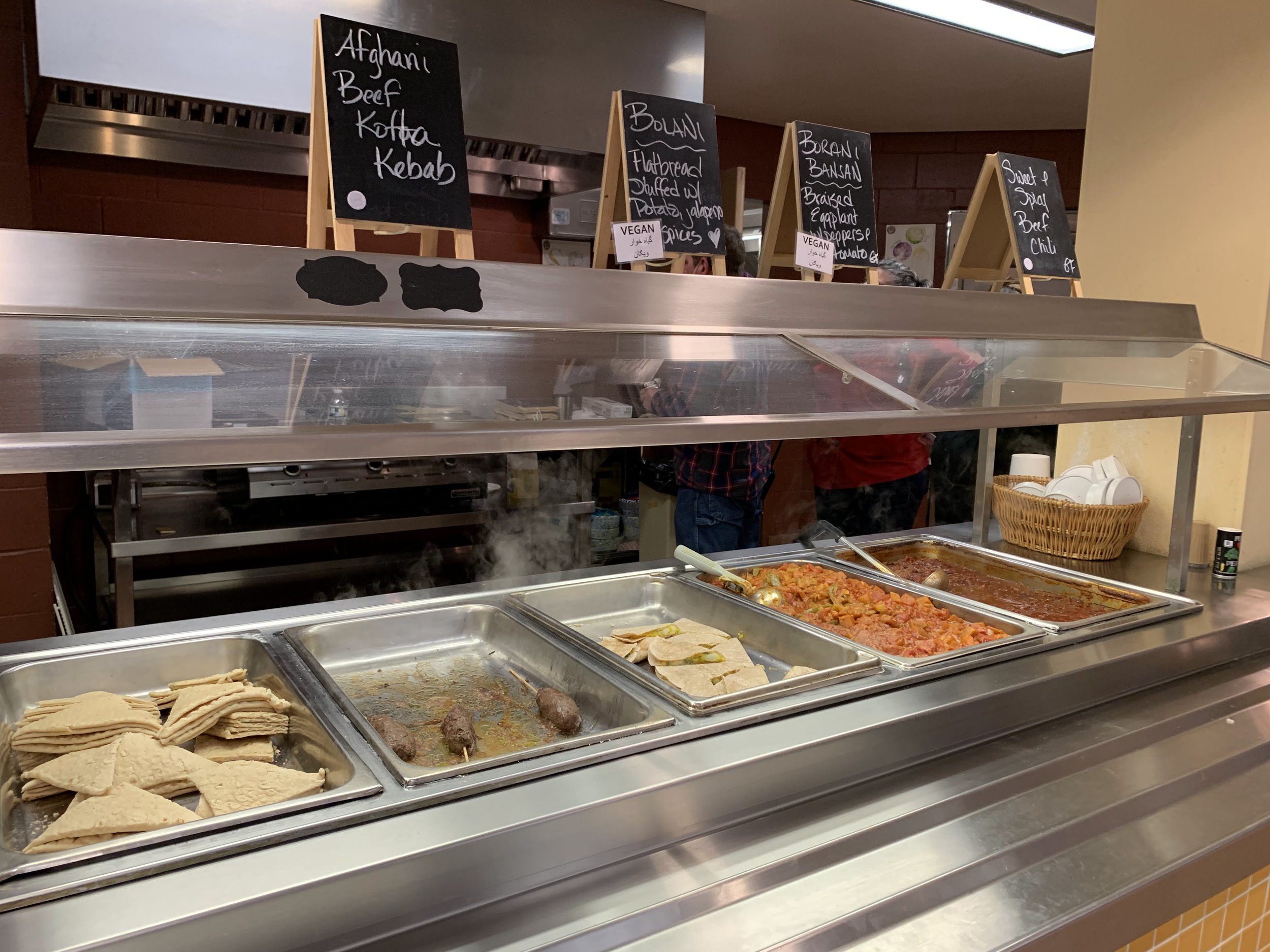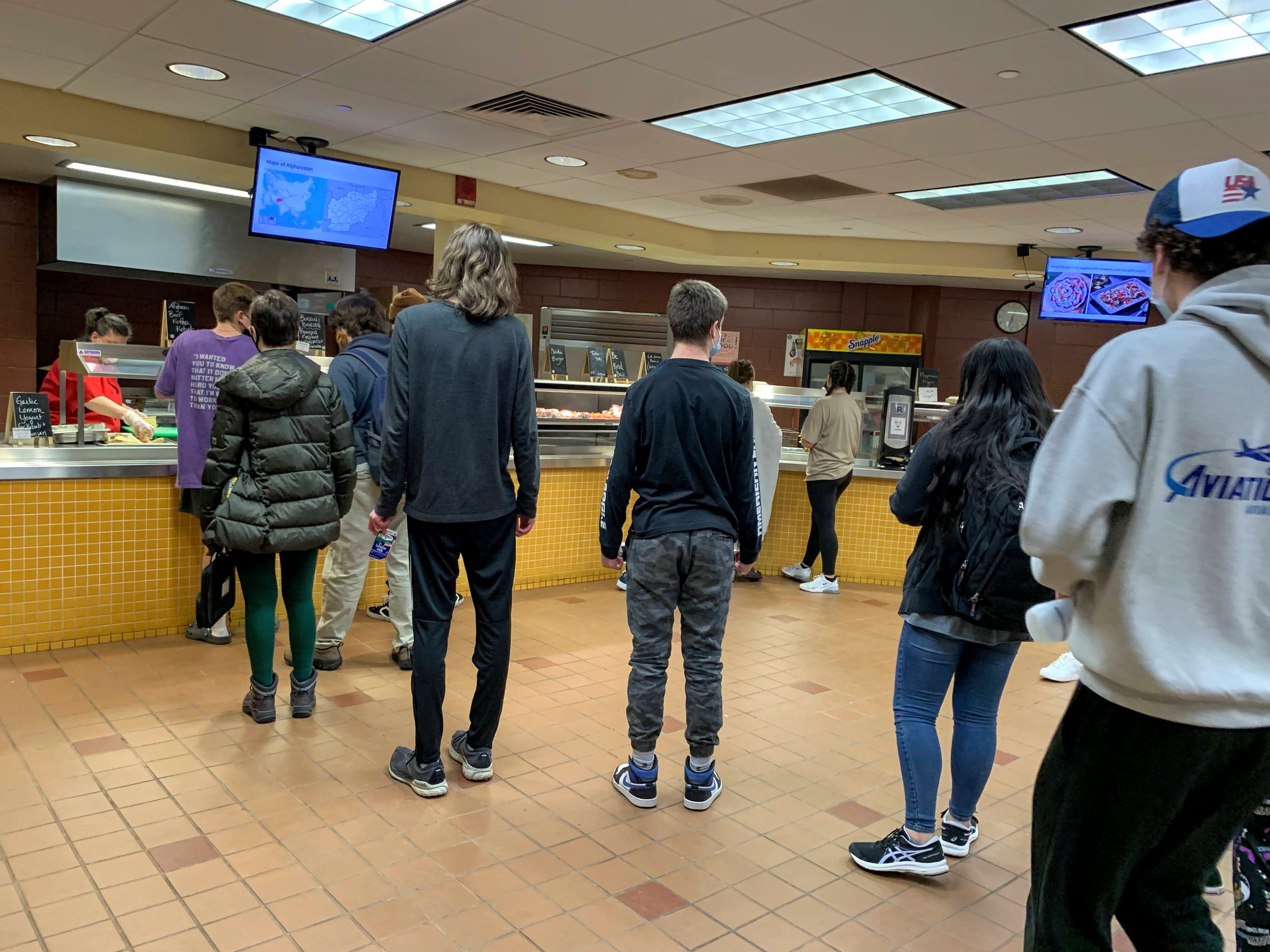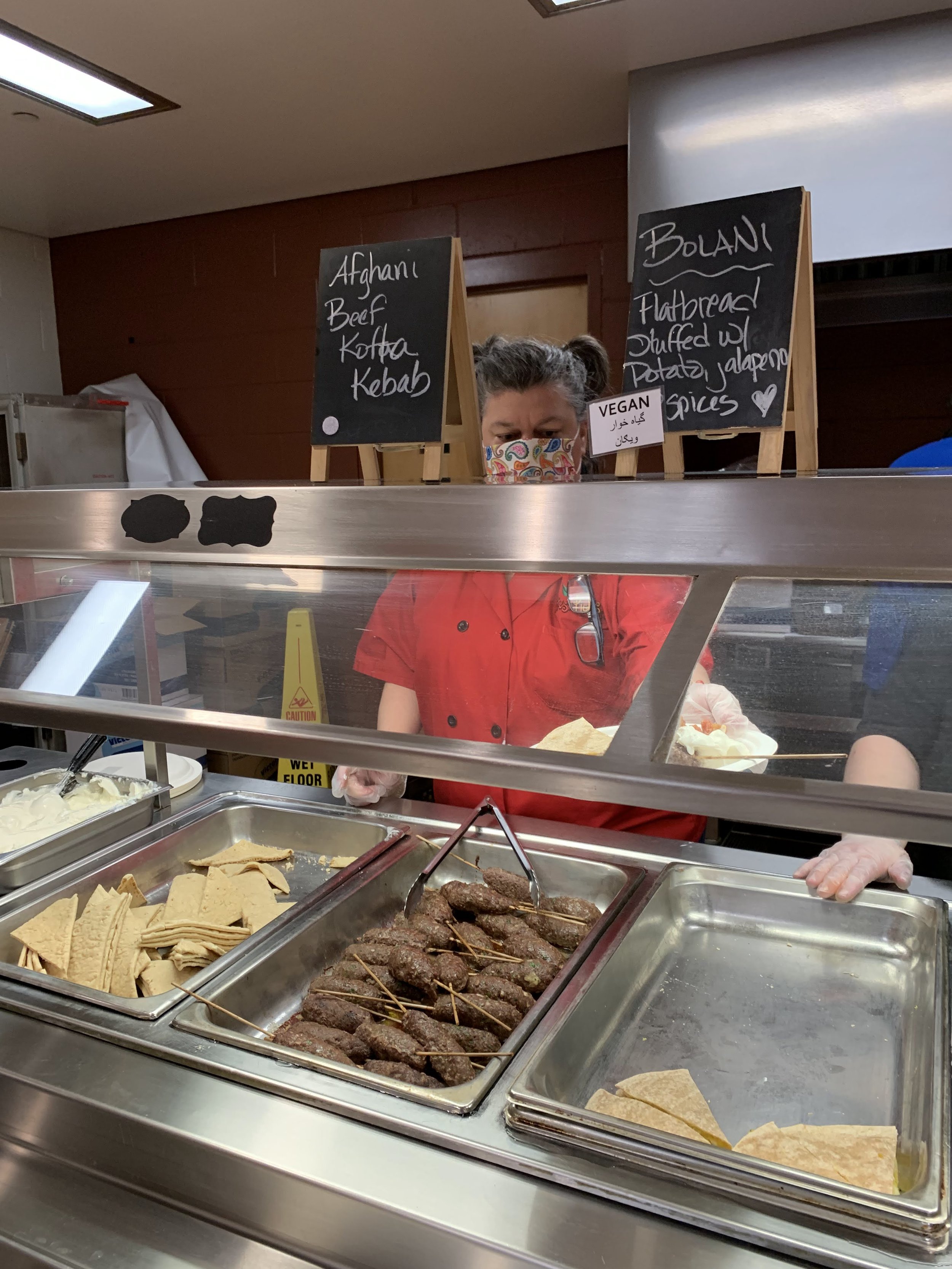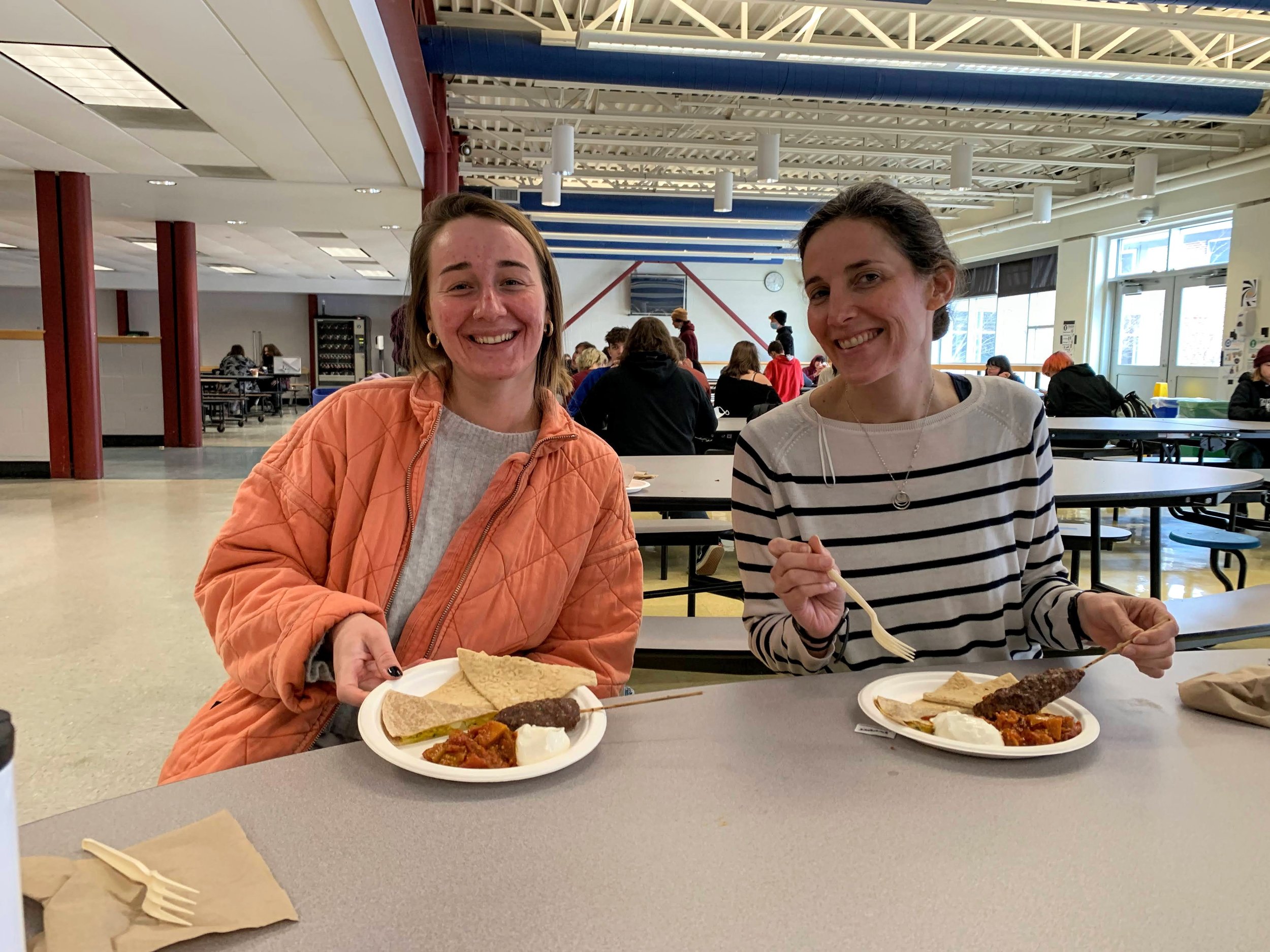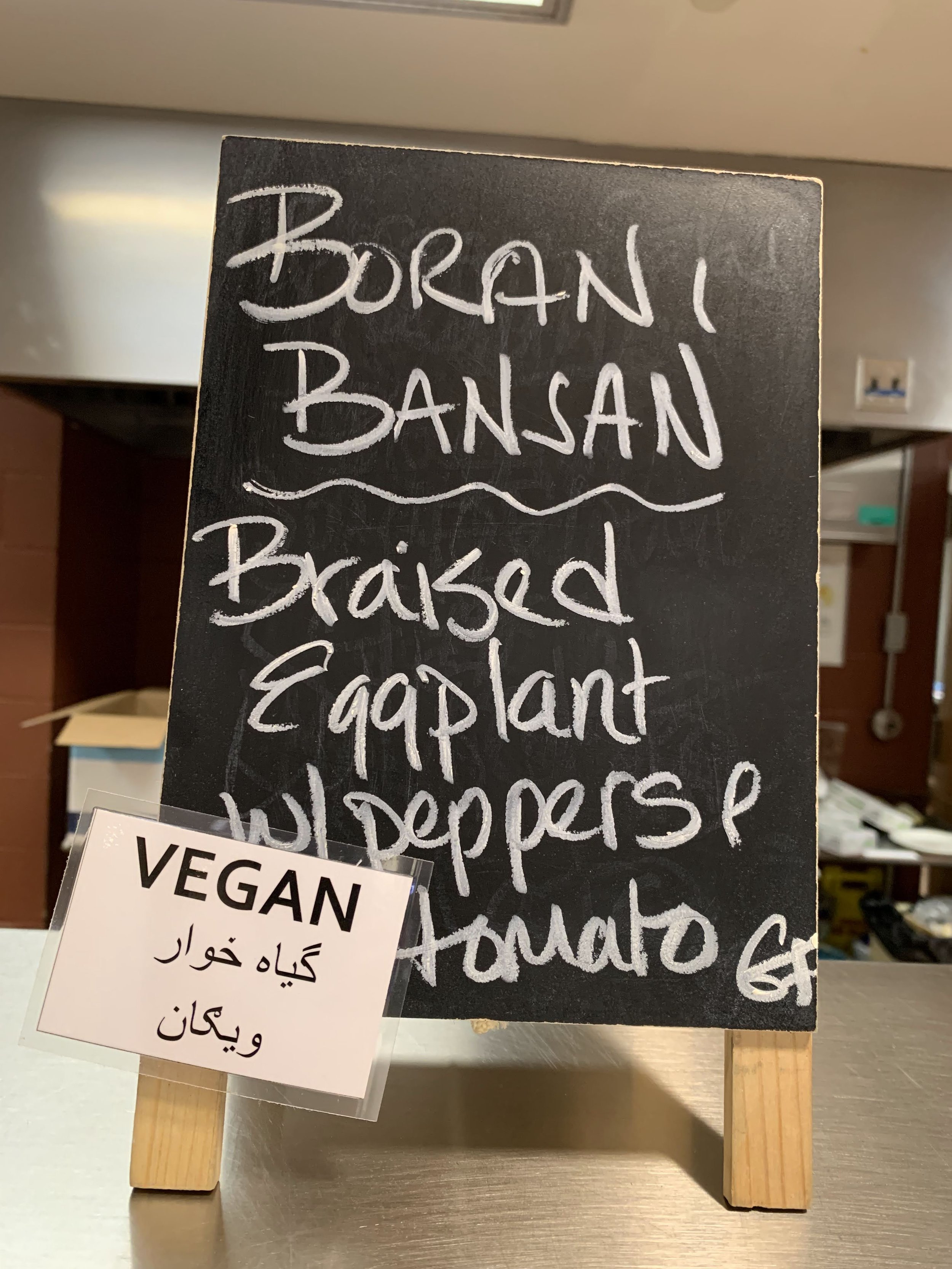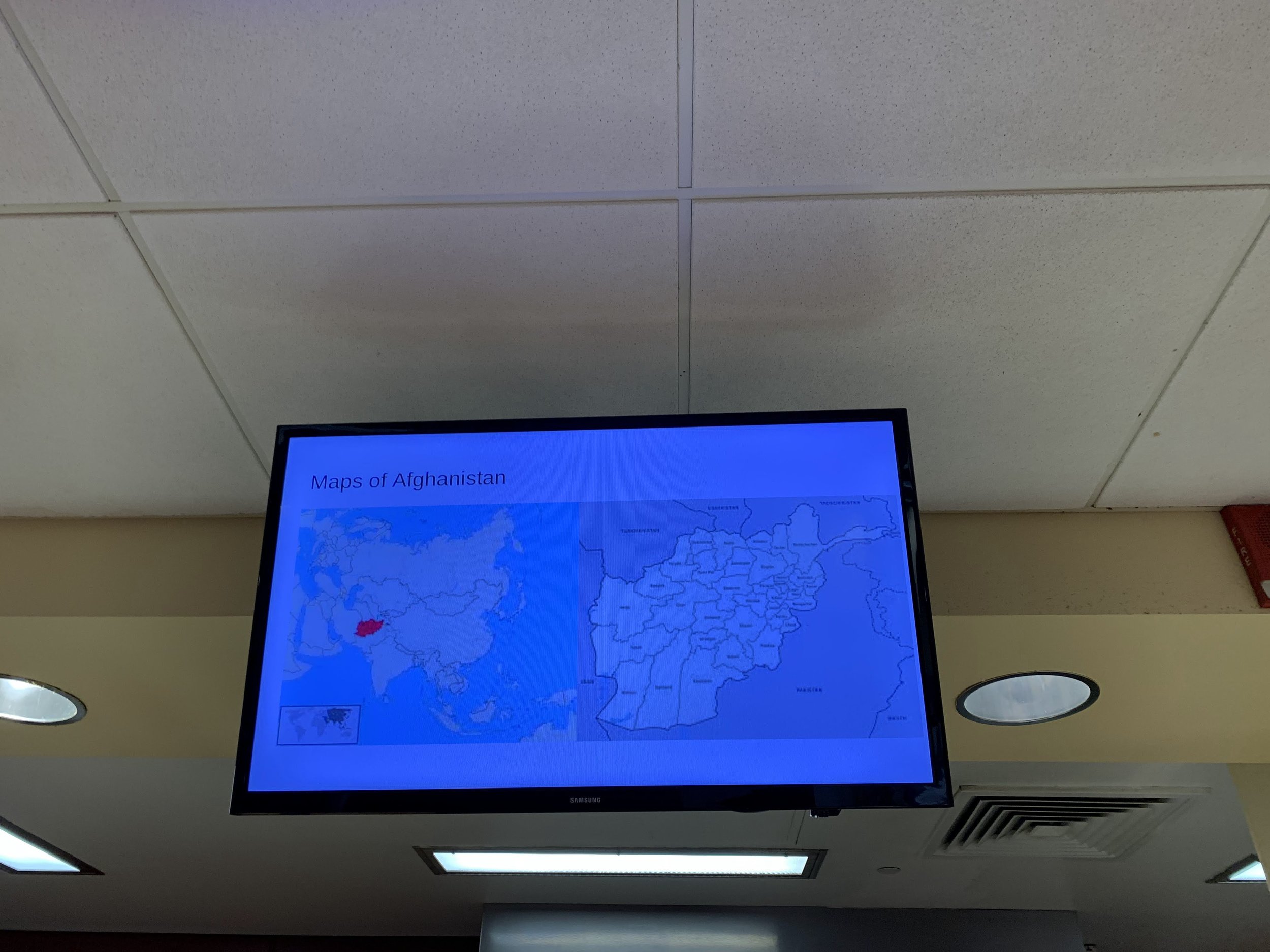The week before the start of the 2022-23 school year, Food Connects hosted a Celebration of Farm to School for school administrative teams and food service directors. We are so proud of the work being done by Farm to School teams at our member schools in Windham Central Supervisory Union, Windham Northeast Supervisory Union, and Windham Southeast School District, and we are grateful to the leaders who help make the work possible. At the event, we shared highlights from the 2021-22 school year at each member school, and we want to take a moment to share those highlights with a wider audience. Read on to hear the wonderful things happening in schools throughout the region!
Farm to School is Thriving in Dummerston
Dummerston School’s Farm to School (FTS) program has been thriving recently, thanks to motivated parents, dedicated teachers, a supportive administration, coaching from Food Connects, and funding support from the Vermont Agency of Agriculture.
In 2018, a group of parents reached out to Food Connects for help planting seeds to grow a Farm to School program at the school. At the time, a couple of teachers gardened with students, but there was no school-wide program. This group of parents met regularly with former Food Connects’ FTS coach Kate Minifie, laying the foundation for school-wide growth and change.
In the fall of 2019, Julianne Eagan began her tenure as principal. Throughout her career as an educator in the Windham Southeast Supervisory Union (WSESU), Julianne has dedicated herself to student health and wellness, and she immediately saw the value of increasing FTS programming in Dummerston. She joined the FTS team and encouraged several teachers to join as well. Sheila Humphreys took over from Kate as the Food Connects FTS coach for Dummerston, bringing with her longstanding relationships with Julianne and 4th-grade teacher Molly Stoner from her previous work as an educator in WSESU. Administrative support, teacher interest, and strong relationships gave the program the boost it needed to get off the ground!
“I have been so inspired by the Dummerston School community’s passion and commitment to expanding our food production at Dummerston School, integrating the garden into our school curriculum, establishing partnerships with local farms, and realizing the potential of our beautiful and sunny rural campus.”
The pandemic slowed progress towards FTS goals at Dummerston in some ways but accelerated them in others. School staff was under tremendous stress with the challenges of pandemic teaching, and outdoor education and gardening were glimmers of hope and joy for teachers and students, sustaining them during this time. Thus the commitment to growing FTS at Dummerston grew.
When it came time to think about priorities for the 2021-2022 school year, it became clear that hiring a part-time garden coordinator to work in the garden and cook in the classroom with students was an essential next step toward growing the program. The FTS team made contact with Tara Gordon, who was working as a garden coordinator at several other WSESU schools at the time, and she was eager to work with Dummerston students as well.
With a part-time garden coordinator on staff, Dummerston sought grant funding to increase support and grow their program. With help from Sheila, the team drafted a proposal to the VT Agency of Agriculture and received a $10,000 Farm to School grant. They are using the funds to purchase equipment and supplies to expand the school garden and grow the garden program, create signage for the garden, and bring in guest educators to work with students on food, farm, and nutrition education.
In addition, the greater school community came together during the summer of 2021 to begin planning and fundraising for a major renovation and redesign of the playground, garden, and forest. On May 14, 2022, after many months of planning, approximately 40 parents, community members, and students attended a work day that included the construction of additional garden beds adjacent to the playground so that students could garden and graze during recess. Space was made in the woods for a forest garden with edible ferns and inoculated mushroom logs. Julianne says it best, stating, “I have been so inspired by the Dummerston School community's passion and commitment to expanding our food production at Dummerston School, integrating the garden into our school curriculum, establishing partnerships with local farms, and realizing the potential of our beautiful and sunny rural campus.” It was definitely heartening to see families and the community coming together to bring these visions to life!
Welcoming our New Afghan Neighbors with Culturally Relevant Foods
By Farm to School Coach, Sheila Humphreys
My grandmother taught me that a thoughtful way to welcome new neighbors into the community is to bake them a pie and deliver it to their front door with a warm smile. Here in Brattleboro, our schools and community are in the process of welcoming approximately 100 new neighbors from Afghanistan. That’s a lot of pies!
In Windham Southeast Supervisory Union (WSESU) schools, Food Service Director Ali West and her staff welcomed Afghan students through her Where in the World are We Eating program. These special meals often take more work for the food service team, so our Marketing & Outreach Manager, Laura, joined the team to help peel potatoes and prepare the meal for the following day.
On a windy, cold Thursday in February, several Food Connects staff joined Ali and Brattleboro Union High School (BUHS) students for lunch to enjoy these delicious new flavors together. On the menu that day for the “Welcome Home Afghan Allies” meal was Borani Banjan (fried eggplant with tomatoes, mint, and garlic yogurt), Bolani (Flatbread stuffed with potato, onion, and peppers), Beef Kafta Kebab, and Lavash. The mix of flavors and spices was outstanding! Here’s what a couple of the students had to say about the meal:
“I like it. I like the naan and the meat has good flavor and seasoning. And the yogurt is good in flavor and texture.”
“Oftentimes the cultural food is a lot better than the other food.”
WSESD’s Nutrition program is not the only way the Brattleboro community is welcoming our new neighbors with nourishing food. The Brattleboro Multicultural Community Center-Ethiopian Community Development Council (MCC) is leading the effort to welcome our Afghan neighbors in many ways, including multiple opportunities each week for community members to provide a fresh main dish for lunch daily through a Meal Train site. Volunteers are encouraged to use a collection of Afghan recipes linked on the site, and feedback from our neighbors so far has been that our locally made versions of their traditional recipes are “somewhat bland.” Therefore cooks are encouraged to “be generous with spices, herbs, salt, and oil in the recipes.” Our neighbors say, “We especially want spicy food when we feel sad.” My coworker Beth and I made a meal a few weeks ago, and my kitchen smelled deliciously spicy afterward, those spices perhaps offering a tiny bit of healing to our new neighbors who have been through so much.
In addition, school garden coordinators at WSESD schools, in collaboration with Food Connects and Wild Carrot Farm, are planning to grow two culturally relevant crops in school gardens this season, gandana and nigella, and Kathy Cassin, the Garden Coordinator at Academy School, is featuring some Afghan dishes in her cooking projects with students. The Brattleboro Community and Food Connects family are so happy to play a small part in helping our new neighbors feel welcome, and we look forward to continuing to support and learn from them as they integrate into our area.
The Lunch Monitor: Increased 3SquaresVT Benefits and the Continued Importance of Universal School Meals
In October 2021, 3SquaresVT benefits increased in Vermont and around the country thanks to important changes made by the federal government to the food stamp program. This is the largest increase in benefits since the program began, which seems like good news for food-insecure families in our community, but there is more to the story.
Unfortunately, recent inflation rates in the US have also climbed to their highest in more than 30 years, which puts increased pressure on low-income families. The new maximum 3SquaresVT benefit per person for a family of 4 is now $6.86 per day. The average meal cost in Vermont is $3.60 per meal, so these benefits cover just 64% of their food costs for a family who is receiving the maximum benefit.
Veggie Van Go pickup
How do families in our community make up the difference? Many families rely on local food pantries like Foodworks and programs like the Vermont Foodbank’s Veggie Van Go Program for meals at home. For families with school-aged children, the fact that school breakfast and lunch are free again this year thanks to a temporary pandemic waiver from the USDA reduces financial stress for families.
School meals looks different than when we were kids!
There is currently a statewide effort to bring universal school meals to every public school in Vermont, to make breakfast and lunch free for all students permanently. 38.6% of families in Windham Southeast Supervisory Union (WSESU) receive 3SquaresVT benefits; therefore if universal meals were to become permanent in WSESU, that would directly benefit approximately 423 students in our district who might not otherwise have adequate nutrition to help them succeed in school. Additionally, 54% of eligible Vermonters are reluctant to apply for 3SquaresVT due to stigma, making programs like universal school meals even more crucial to the health of children and families in our community who are not receiving benefits. Multiple studies have confirmed that universal meals improve student learning, behavior, and health, reducing stigma in schools, and fostering a positive learning environment. Click here to show your support for universal meals.





